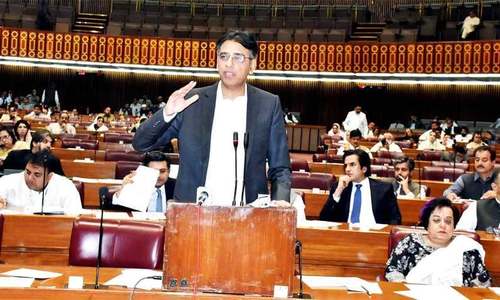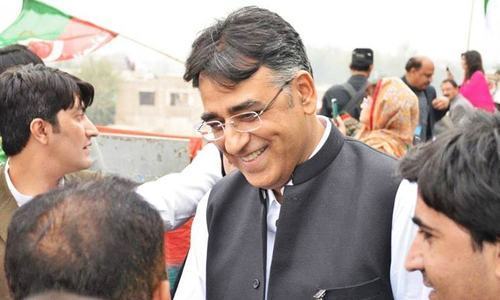UNLIKE the importance the Pakistan Tehreek-i-Insaf (PTI) attached to the agriculture sector in its election manifesto, the party largely chose to ignore the sector in the ‘mini-budget’ it announced a month after taking the reigns of the country.
Finance Minister Asad Umar’s promise of allocating Rs7 billion as subsidy for stabilising Urea fertiliser prices was the only mention of the sector in the budget. The speech failed to appease the farming community, which had been hoping for much more than what the government announced.
In its agriculture policy and manifesto the PTI had promised to optimise existing, and introduce new, subsidy programmes, increase access to credit with easy terms of repayment and share costs of investments required to improve productivity.
The party also pledged to enforce an efficient and transparent market clearing mechanism to get fair market prices for farmers, create new warehouses along with a crop grading system under public-private partnership and reduce import duty on farm machinery.
The speech failed to appease the farming community, which had been hoping for much more than what the government announced
Some farmers claim that Jahangir Tareen, senior PTI leader who was disqualified for holding any public office by the Supreme Court in an offshore company case, had even promised to impose an agriculture emergency in a bid to make the sector profitable.
“Mr Tareen had been promising before the polls that soon after being voted into power the PTI would impose an agriculture emergency and would ensure access to farm loans on easy terms, promote the food processing industry and take other steps as per the party’s agriculture policy,” recalls Khalid Mahmood Khokhar, president of Pakistan Kisan Ittehad, a small landholders’ representative body.
He regretted that Mr Umar hadn’t announced any meaningful steps to this effect and that the Rs7bn relief promised to the fertiliser sector would practically be nullified by the increase in gas tariffs for the fertiliser industry. “The higher gas tariff will lead to an increase of at least Rs123 per bag of urea fertiliser which will be in great demand for the Rabi season that starts within a few weeks.”
Kisan Board Pakistan (KBP), another body of small growers, argues that it’s not just the costlier fertilisers that will hurt the farming community but also the general price hike which shall come about due to the increase in gas tariffs for various sectors.
“The rural community, which comprises of more than 60 per cent of the total population, will be the ultimate loser (because of the increase in gas tariffs announced a day before the mini-
budget) as there will be a subsequent increase in the price of farm nutrients, farm inputs and essential items,” says KBP President Chaudhry Nisar Ahmad Advocate.
He urges the government to raid those who hoard fertiliser in order to protect growers from exploitation and thereby partially offsetting the impact of the gas tariff increase. Mr Ahmad hopes that the government will announce support prices for major crops and help sugarcane growers recover their dues from the millers.
There is also confusion within the sector about the intention behind the fertiliser subsidy allocation; whether it is to be used to import fertilisers and then provide it to farmers on subsidised rates as a relief measure, or to retire a part of the dues owed to the local fertiliser industry from the the government.
Farmers like Mr Khokhar believe that the budgetary allocation is meant for importing at least 100,000 tonnes of fertiliser in order to maintain a balance between supply and demand at the onset of the Rabi season as the local industry has been unable to meet demand.
But a Fertiliser Manufacturers of Pakistan Advisory Council member, who requested not to be named, says that only Rs2bn of the budgetary allocation will go into importing fertilisers while the rest will be given to the industry to retire a portion of the dues worth Rs20bn outstanding against the government for providing the farmers fertilisers on subsidised rates.
He claims that the finance minister had, in a recent meeting with representatives of the fertiliser industry, promised to repay the subsidy amount in instalments. The minister apparently also agreed to share the cost of the LNG to be used by the industry for the manufacture of fertilisers so that three units — Pak Arab (Multan), Fatima Fert (Sheikhupura) and Agrotech (Mianwali) — lying closed for the last year may be revived.
The three plants are capable of producing 87,000 tonnes per month of urea and their closure has caused a loss of 100,000 tonnes in the inventory. The member explains that the industry has been allowed to use a mix of natural gas and LNG at a ratio of 68-32pc to minimise production cost since only using LNG as a raw material is not feasible.
Published in Dawn, The Business and Finance Weekly, September 24th, 2018














































